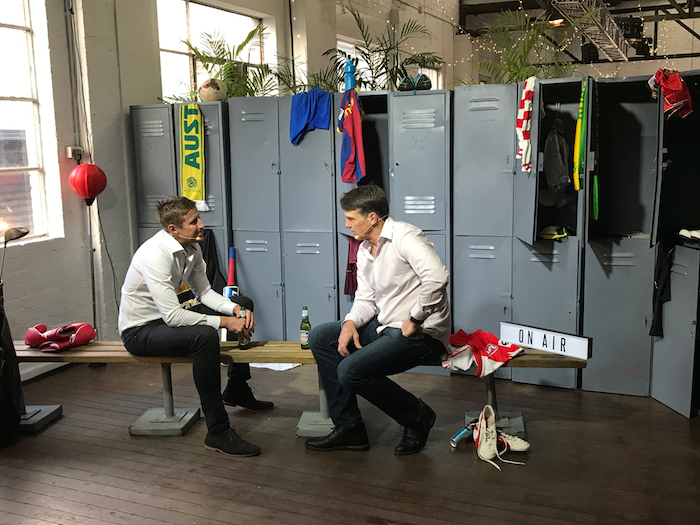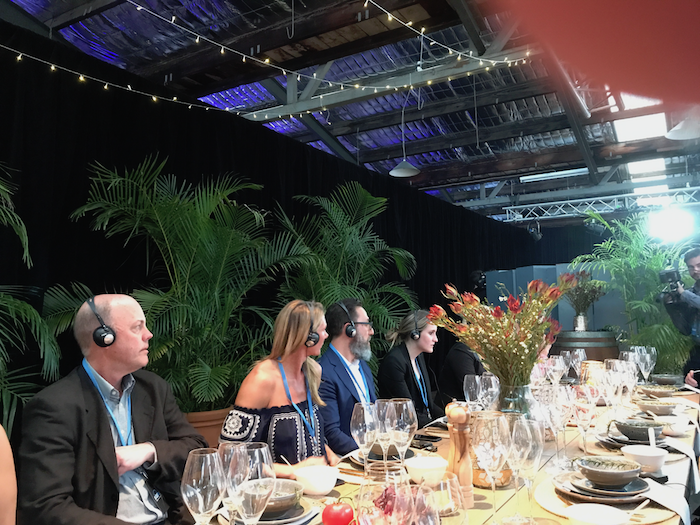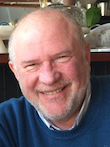Peter Saxon peers into the vibrant world of podcasting.
Radio sure knows how to launch something.
Last week SCA launched something called Podcast One.
What is Podcast One? Rather than explain it, a guide takes us on a journey through an abandoned warehouse-cum-trendy venue so that we could experience it for ourselves.
We’re handed a set of headphones plugged into a piece of portable audio equipment, like the kind you get at an art gallery. There’s some eerie sounds coming through the cans as we’re guided up a staircase and come across what looks like a crime scene in a cheap hotel. And so the story begins.

For about five minutes or so we’re immersed in a gripping whodunnit called the Trials of the Vampire narrated by Adam Shand before we move to the next scene, a locker room where we get to eavesdrop on sporting greats Paul Roos and Mark Howard deep in an animated conversation. They’re recording Triple M’s The Howie Games.

Finally it’s a banquet for Masterchef Gary Mehigan’s foodies podcast. We’re invited into a room with a very long table set for a feast where we sit down to an entree of tomato and mozzarella. Sadly, that’s it. No more food except for thought. It turns out to be more a feast for the ears than the taste buds but the audio experience is so good you can almost taste it.

Leaving the podcast banquet scene behind, we’re ushered into the next room where SCA has catered for us with actual food and drink that satisfies both hunger and thirst in the temporal world not just the spiritual.
This is where I get to catch up with Grant Tothill, a 15 year veteran with Austereo and SCA. A former Triple M Network program director, he’s now Head of SCA Podcasting – Podcast One Australia.
“When you say that podcasting has exploded all of a sudden. Well it hasn’t,” Tothill corrects me. “It’s been steadily growing. Most people really still need to be educated on it. Only 17% of Australians are actually podcasting so there’s a fair bit of work to do in educating people to get podcasting as a natural thing into the mainstream.”
To start with, podcasting was about catch up radio, “They’ve allowed audiences to listen to their radio shows in a time that suits them which is exactly right in an on demand world,” says Tothill. “The thing is though, that there are big opportunities in original content to entertain audiences beyond radio. We’re audio people who know that audio can still tell great stories. It’s about story telling in so many different ways. We used to have How Green Was My Cactus. We used to have all these different serials.”
Not long after dinosaurs ruled the earth, but before television, radio was like television but without pictures. Content was made up of mostly half hour shows that people would make appointments to hear. If you missed it, it was gone. Catch up radio or TV had yet to be invented while home tape recording equipment was hellishly expensive and cumbersome.
Serials like The Lone Ranger along with quiz shows and scripted music programs were the order of the day. Now, scripted drama like Adam Shand’s Trials of the Vampire are making a comeback through podcasting.
The thing that struck me most about the Podcast One demonstration was the sheer quality of the sound. Despite the mid-quality headphones provided, the sound was so crisp and all-encompassing – like 4k, 3D television compared to standard definition. To my ears, it made the whole experience a delight.
As Tothill explains, “One of the things that we want to do with all of our podcasts is deliver a quality for the audience. With respect there’s a lot of podcasters who turn on their smartphone or cheaper equipment and the audio quality is not that good. So, as a broadcast business one of our things is that we want to deliver quality audio.
“There’s actually no trickery on it other than using good sound production techniques and styles and a variety of different attitudes… the way we mix it out. The way we have our creators works and use microphones and how we score it. Its all done in a way to make the best of what we can from an audible point of view to bring out the story in a way that’s really easy to hear,” says Grant Tothill.

Peter Saxon

